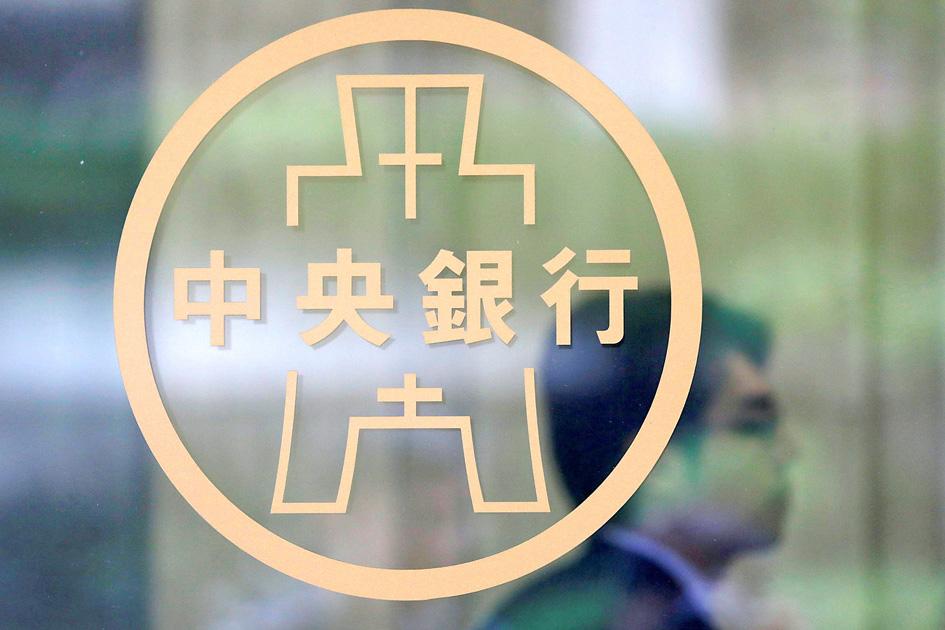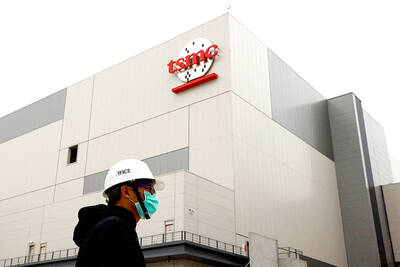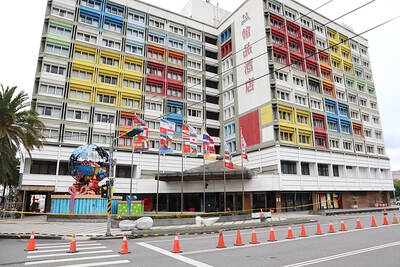The central bank denied restricting sales of US dollars by currency traders in a bid to slow the appreciation of the New Taiwan dollar, which rose above NT$29.5 against the US greenback in intraday trading yesterday.
The bank on Sunday issued a brief statement dismissing media reports that it asked banks not to sell large amounts of US dollars in an attempt to slow the appreciation of the New Taiwan dollar.
“The bank has always respected bid-offer practices in the foreign exchange market,” it said yesterday.

Photo: Reuters / Tyrone Siu
However, a small number of banks put up sell orders involving large amounts and slow transactions, practices that affect other participants, it said.
The central bank has to take action and call for restraint among traders to facilitate the smooth flow of the local foreign exchange market, which is small and shallow, it said.
“The suggestion, intended as advice, should not be taken as sales restrictions,” it added.
Taiwan’s market has seen fast inflows of foreign capital in the second half of this year, as the nation’s interest rates stay in positive territory, while the central banks of other nations have cut policy rates to zero or less.
The NT dollar yesterday gained NT$0.02 to close at NT$29.486 against the US dollar, a two-and-a-half-year high, on turnover of US$1.14 billion, the bank said.
A stronger NT dollar could hurt Taiwanese exporters, reducing their competitiveness compared with foreign rivals or leading them to incur foreign exchange losses.

Stephen Garrett, a 27-year-old graduate student, always thought he would study in China, but first the country’s restrictive COVID-19 policies made it nearly impossible and now he has other concerns. The cost is one deterrent, but Garrett is more worried about restrictions on academic freedom and the personal risk of being stranded in China. He is not alone. Only about 700 American students are studying at Chinese universities, down from a peak of nearly 25,000 a decade ago, while there are nearly 300,000 Chinese students at US schools. Some young Americans are discouraged from investing their time in China by what they see

Taiwan Semiconductor Manufacturing Co (TSMC, 台積電), the world’s largest contract chipmaker, yesterday reported record sales for the first quarter, which analysts attributed to solid demand for emerging technologies. Consolidated revenue totaled NT$592.64 billion (US$18.51 billion) in the January-to-March period, up 16.5 percent from a year earlier, but down 5.26 percent from the previous quarter, TSMC said in a statement. The first-quarter revenue beat analysts’ average projection of NT$579.5 billion, Bloomberg News reported. That performance lends weight to expectations that the world’s most valuable chipmaker would return to solid growth this year after weathering a post-COVID-19-pandemic cratering of smartphone and computer sales. TSMC is budgeting

HUALIEN BRANCH: The company had been planning to rebuild the hotel before it was damaged in the quake and vowed to give affected employees the option to transfer The owner of Chateau de Chine Hualien (花蓮翰品酒店) is planning to lay off 86 workers after shutting down the hotel due to damage it sustained in a powerful earthquake on Wednesday last week, the Ministry of Labor said yesterday. The hotel has submitted a layoff report to the Hualien County Government and expects to let 69 workers go this month and 17 next month, the ministry said. LDC Hotels & Resorts Group (雲朗觀光集團), the owner of Chateau de Chine Hualien, confirmed the layoff plan in a statement yesterday. LDC said the hotel has been closed since Wednesday last week when the temblor occurred

US CONSCULTANT: The US Department of Commerce’s Ursula Burns is a rarely seen US government consultant to be put forward to sit on the board, nominated as an independent director Taiwan Semiconductor Manufacturing Co (TSMC, 台積電), the world’s largest contract chipmaker, yesterday nominated 10 candidates for its new board of directors, including Ursula Burns from the US Department of Commerce. It is rare that TSMC has nominated a US government consultant to sit on its board. Burns was nominated as one of seven independent directors. She is vice chair of the department’s Advisory Council on Supply Chain Competitiveness. Burns is to stand for election at TSMC’s annual shareholders’ meeting on June 4 along with the rest of the candidates. TSMC chairman Mark Liu (劉德音) was not on the list after in December last